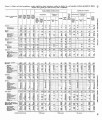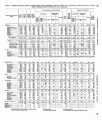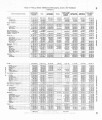| OCR Text |
Show COMMISSIONER OF INDIAN AFFAIRS. 19 population and the fact that these lands were allotted to the indi-vidual members of the Five Civilized Trjbes. The territory was divided into 17 districts, with a certain designated town in each dis-trict as a headquarters for the probate attorney. The districts con-sist of from one to four or more counties, according)? >he a ount of probate work in each county and the railroad facdities ensling the probate attorney to cover his district and attend the different county and district courts. These attorneys have been the means of preventing much wasteful extravagance and incompetence by their supervision of probate cases, by chechng reports of guardians, requiring new bonds,, and m preventing losses to dependent Inban estates worth milllons of dollars. PROBATING ESTATES OF DECEASED INDIANS AND APPROVAL OF WILLS. The probate work of the Indian Service is important because no inherited allotment can be sold or leased or a patent fee issued there-for until the heirs have been determined. Jnasmuch as the law provides that departmental findings as to heirs shall be final, it is apparent that special care and consideration. should be given to the evidence support~nge ach heirship, case subm~tteda nd that so far as possible no heirs on either the line%! or collateral side should be omitted, since under existin legislation neither State nor Federal courts may review the heirs%ip decisions of the Secretary of the Interior,,except for mistake of law after the land has passed beyond the administration of the land-department. In order properly to carry on this work, persons trained in the legal rofession, especial17 in robate matters, are essential both in the fie1i an'd in, the o ffice. $he annual appropriation of $100,000 for probate work is re-imbursable from a graduated scale of fees which range generally from $15 to $50, depending on the appra~sed valuation of a p e n allotment. No fee is charged where an estate is valued less than $250. In case the Indian devises his lands, the same fee is charged for probating the will as if he had died intestate and his heirs formally determined. The combined effort of the field and office forces results in about 4,000 decisions annually, with a considerable amount of accompanying co~e~pondence. The year's work of determ~ningh ews of deceased Indians and the consideration of wills of Indians or ersons hav~n Interest in Indian trust property under provisions oP the act of 5une 25, 1910 (36 Stat. L.. 855-856). as amended bv the act of February 14, 1913 (37 " , Stat. L.; 678), ,p,;ogressed satisf~ctorily. Final dlsvosition was made of 3.889 heirshin cases and 308 wills, 69 reopened cases, 10 cases in which former decisions were affirmed, and 82 modifications of former findings. Eighteen claims against estates of deceased Indians were allowed. Cases of a miscellaneous character numbered 31564. Sixteen examiners of inheritance were engaged m holding hearings on reservations and the public domain. Number of letters .written, 7,760. The aggregate of fees earned during the year, as authorized by the act of February 14, 1920 (41 Stat. L., 413), approximates the sum of $98,070. |









































































